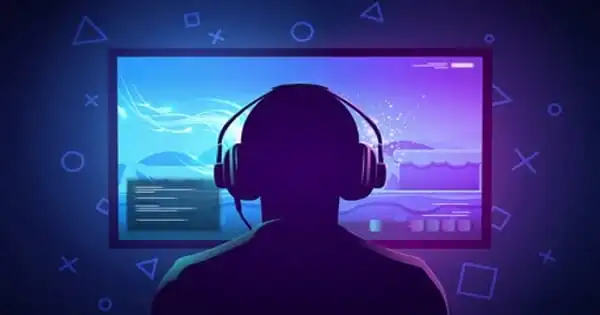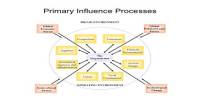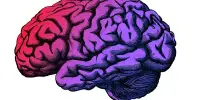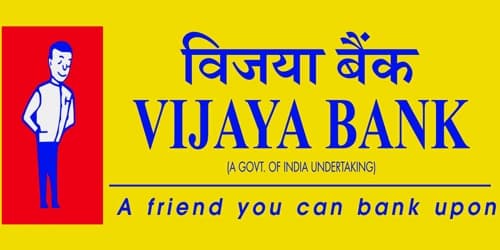What if, instead of being an impediment to literacy, video games may really help children improve their reading abilities? Scientists tested an action video game for children with the goal of improving their reading skills. After only twelve hours of training, the results show enhanced reading abilities. Notably, these advantages endure over time, with language school grades improving more than a year after training concludes.
Decoding letters into sounds is an important step in learning to read, but it is not sufficient for mastery. “Reading requires several other essential mechanisms that we don’t always think about, such as knowing how to move our eyes on the page or how to use our working memory to link words together in a coherent sentence,” says Daphné Bavelier, a professor in the Psychology Section of the UNIGE’s Faculty of Psychology and Educational Sciences (FPSE).
“These other skills, such as vision, attention deployment, working memory, and cognitive flexibility, are known to be improved by action video games,” explains Angela Pasqualotto, first author of this study, which is based on her Ph.D. thesis at the University of Trento’s Department of Psychology and Cognitive Science, directed by Professors Venuti and De Angeli.
A Learning-supportive Action Video Game for Kids
The quality of video games for children has greatly improved in recent years. It’s not so much a renaissance (though one might argue for a Zeldaissance) as it is rapid and consistent progress. Gameplay has evolved in tandem with aesthetics, and now that developers are more at ease with crafting open environments, players are being granted liberties they could not have imagined a decade ago.
The universe of this game is an alternate world in which the youngster, accompanied by his Raku, a flying creature, must carry out various tasks to preserve planets and advance in the game. The goal is to recreate the elements of an action game without integrating violence, making it suitable for young children.
Angela Pasqualotto
With this in mind, a video game was created that blends action video games with microgames that teach several executive functions, such as working memory, inhibition, and cognitive flexibility, all of which are required for reading. “The universe of this game is an alternate world in which the youngster, accompanied by his Raku, a flying creature, must carry out various tasks to preserve planets and advance in the game,” Angela Pasqualotto explains.
The goal is to recreate the elements of an action game without integrating violence, making it suitable for young children. “For example, the Raku flies through a meteor shower, moving around to dodge them or aiming at them to decrease their impact, while collecting vital materials for the rest of the game, similar to what you’d find in action video games.”
The scientists then worked with 150 Italian schoolchildren aged 8 to 12, separated into two groups: the first played the team’s video game, while the second played Scratch, a game that teaches children how to code. Both games demand attentional control and executive processes, but in different ways.
The action video game requires children to complete tasks in a set amount of time, such as remembering a series of symbols or responding only when the Raku produces a specific sound, while increasing the complexity of these tasks based on the child’s performance. The control game Scratch necessitates planning, reasoning, and problem-solving. To create the desired programming sequence, children must manipulate objects and logical structures.
“First, we assessed the children’s ability to comprehend words, non-words, and paragraphs, as well as an attention test that measures the child’s attentional control, which we know is developed by action video games,” Daphne Bavelier adds. Following the instruction, the students played either the action video game or the control game for six weeks, two hours each week, under supervision at school. Clinicians from the Laboratory of Observation Diagnosis and Education assessed the children at school (UNITN).

Long-term improvement in reading skills
The scientists repeated the tests on both groups of children shortly after the training ended. “We discovered a 7-fold improvement in attentional control in children who played the action video game against the control group,” explains Angela Pasqualotto. Even more astonishingly, the research team found a clear improvement in reading, not only in terms of reading speed, but also in accuracy, whereas the control group showed no gain. This literacy progress occurs despite the fact that the action video game does not need any reading engagement.
“What makes this study unique is that we conducted three further assessment exams six months, twelve months, and eighteen months following training. On each occasion, the trained children outperformed the control group, demonstrating that the gains were sustained” Angela Pasqualotto adds Furthermore, the trained children’s Italian grades improved dramatically over time, demonstrating a virtuous growth in learning ability. “The impacts are thus long-term, consistent with the action video game enhancing the ability to learn how to learn,” explains Daphne Bavelier.
The game will be translated into German, French, and English as part of the NCCR Evolving Language project and in collaboration with Irene Altarelli (co-author of the study and researcher at LaPsyDE, University of Paris). “Decoding is more or less difficult when reading depending on the language.” For example, Italian is quite transparent (each letter is pronounced), whereas French and English are quite opaque, resulting in very different learning obstacles.
“Reading in opaque languages necessitates the ability to understand exceptions, to learn how different situations affect pronunciation, and therefore a larger reliance on memorization,” says Irene Altarelli. Will the effects of action video games on reading acquisition apply to more complicated learning contexts such as French or English reading? This is the question that this research will attempt to answer. Furthermore, the video game will be available totally at home, remotely, as will the administration of reading and attention exams, to supplement school lessons rather than take time away from school hours.
















